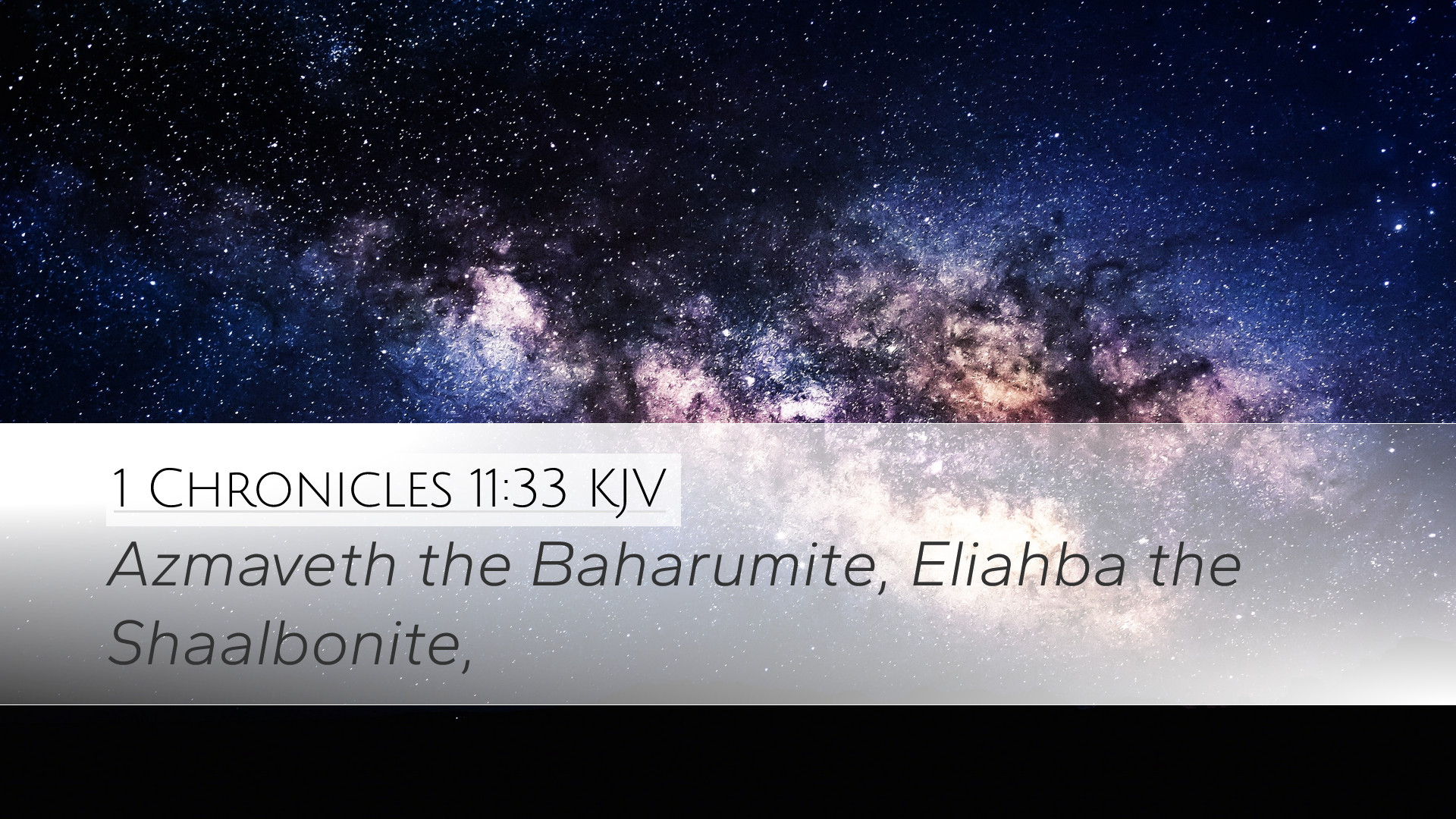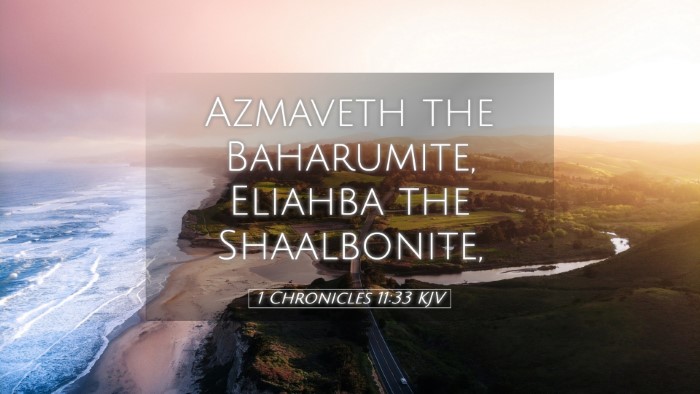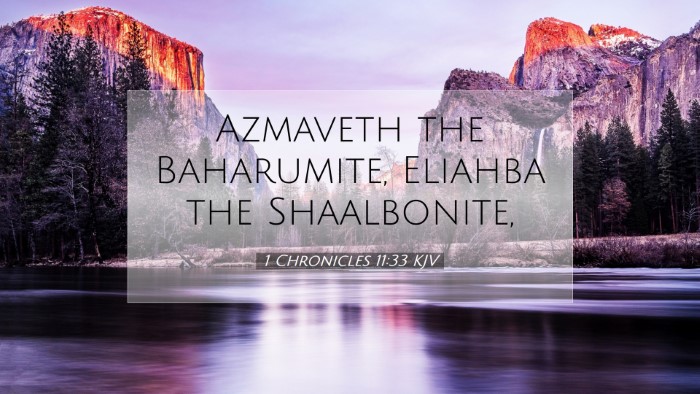Old Testament
Genesis Exodus Leviticus Numbers Deuteronomy Joshua Judges Ruth 1 Samuel 2 Samuel 1 Kings 2 Kings 1 Chronicles 2 Chronicles Ezra Nehemiah Esther Job Psalms Proverbs Ecclesiastes Song of Solomon Isaiah Jeremiah Lamentations Ezekiel Daniel Hosea Joel Amos Obadiah Jonah Micah Nahum Habakkuk Zephaniah Haggai Zechariah MalachiChapter
1 Chronicles 1 1 Chronicles 2 1 Chronicles 3 1 Chronicles 4 1 Chronicles 5 1 Chronicles 6 1 Chronicles 7 1 Chronicles 8 1 Chronicles 9 1 Chronicles 10 1 Chronicles 11 1 Chronicles 12 1 Chronicles 13 1 Chronicles 14 1 Chronicles 15 1 Chronicles 16 1 Chronicles 17 1 Chronicles 18 1 Chronicles 19 1 Chronicles 20 1 Chronicles 21 1 Chronicles 22 1 Chronicles 23 1 Chronicles 24 1 Chronicles 25 1 Chronicles 26 1 Chronicles 27 1 Chronicles 28 1 Chronicles 29Verse
1 Chronicles 11:1 1 Chronicles 11:2 1 Chronicles 11:3 1 Chronicles 11:4 1 Chronicles 11:5 1 Chronicles 11:6 1 Chronicles 11:7 1 Chronicles 11:8 1 Chronicles 11:9 1 Chronicles 11:10 1 Chronicles 11:11 1 Chronicles 11:12 1 Chronicles 11:13 1 Chronicles 11:14 1 Chronicles 11:15 1 Chronicles 11:16 1 Chronicles 11:17 1 Chronicles 11:18 1 Chronicles 11:19 1 Chronicles 11:20 1 Chronicles 11:21 1 Chronicles 11:22 1 Chronicles 11:23 1 Chronicles 11:24 1 Chronicles 11:25 1 Chronicles 11:26 1 Chronicles 11:27 1 Chronicles 11:28 1 Chronicles 11:29 1 Chronicles 11:30 1 Chronicles 11:31 1 Chronicles 11:32 1 Chronicles 11:33 1 Chronicles 11:34 1 Chronicles 11:35 1 Chronicles 11:36 1 Chronicles 11:37 1 Chronicles 11:38 1 Chronicles 11:39 1 Chronicles 11:40 1 Chronicles 11:41 1 Chronicles 11:42 1 Chronicles 11:43 1 Chronicles 11:44 1 Chronicles 11:45 1 Chronicles 11:46 1 Chronicles 11:47

